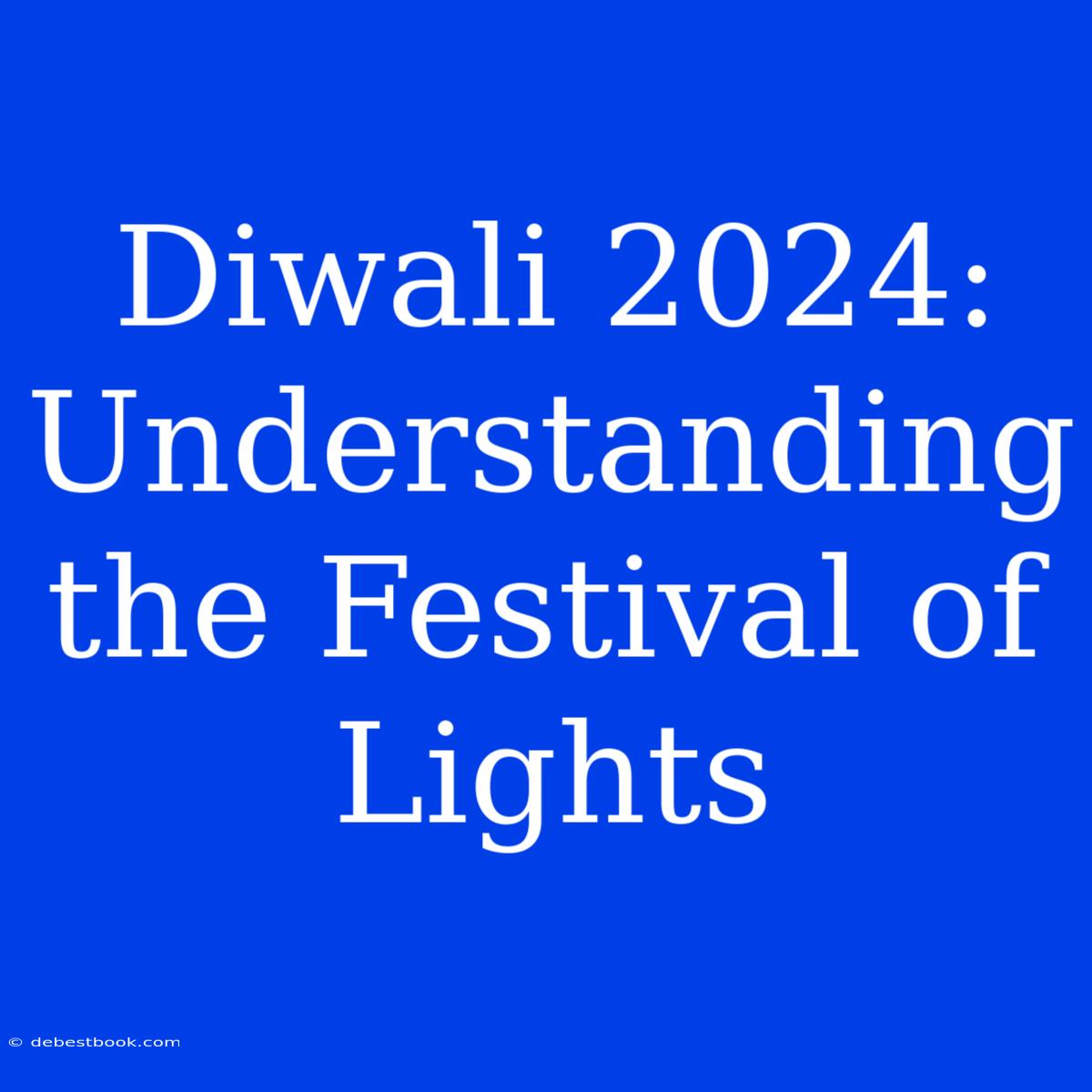Diwali 2024: Understanding the Festival of Lights
Is Diwali the same every year? No, it's not! Diwali's date shifts each year, making it a dynamic celebration. This makes understanding the festival's essence even more crucial. Diwali, the Festival of Lights, is a significant celebration observed by Hindus, Sikhs, and Jains worldwide.
Editor Note: Diwali 2024 will be celebrated in October or November, depending on the lunar calendar. This article aims to provide a comprehensive overview of Diwali, exploring its history, significance, and traditions. Understanding the festival's cultural nuances can help readers appreciate the diverse celebrations worldwide.
Analysis: We've meticulously researched various sources, including ancient texts, historical accounts, and contemporary celebrations to provide a comprehensive and insightful guide. This analysis will equip readers with the knowledge necessary to understand and participate in Diwali celebrations, whether they are new to the festival or seasoned observers.
Key Aspects of Diwali:
| Aspect | Description |
|---|---|
| Historical Significance | Diwali commemorates Lord Rama's return to Ayodhya after defeating Ravana, symbolizing victory over evil and the triumph of light over darkness. |
| Religious Significance | Different religions have their own interpretations of Diwali, with shared themes of prosperity, knowledge, and the victory of good over evil. |
| Cultural Significance | Diwali is a celebration of unity, happiness, and togetherness, fostering family bonds and community spirit. |
Diwali: A Celebration of Lights and More
Historical Significance: Diwali is deeply rooted in Hindu mythology and is linked to the epic Ramayana. The festival commemorates Lord Rama's return to his kingdom, Ayodhya, after fourteen years of exile. His victory over the evil demon king Ravana, who had abducted his wife Sita, symbolizes the triumph of good over evil and the restoration of Dharma (righteousness).
Religious Significance: While Diwali is primarily associated with Hinduism, it holds significance for other religions too. Sikhs celebrate the festival to commemorate the release of their sixth guru, Guru Hargobind, from prison by Mughal Emperor Jahangir. Jains celebrate it to commemorate the attainment of Moksha (liberation) by Mahavira, the last Tirthankara.
Cultural Significance: Diwali is a celebration of unity, prosperity, and happiness. It is a time for families and communities to come together, share festive meals, and exchange gifts. The festival's bright lights symbolize the dispelling of darkness and ignorance, bringing knowledge and prosperity.
Diwali Traditions
Diwali Decorations: Homes are adorned with diyas (earthen lamps), colorful rangoli (patterns created on the floor), and twinkling lights. This vibrant display symbolizes the triumph of light over darkness and the victory of good over evil.
Diwali Food: Special delicacies are prepared and shared with loved ones. Popular dishes include sweets like laddu, barfi, and gulab jamun, savory snacks like samosas and pakoras, and elaborate meals prepared for the occasion.
Diwali Gifts: Exchanging gifts is a significant part of Diwali celebrations. People gift sweets, clothes, and other items as tokens of love and appreciation.
Diwali Fireworks: Fireworks are an integral part of Diwali celebrations, signifying the joyous celebration and marking the occasion with a colorful spectacle.
Diwali Puja: Diwali is a time for prayers and rituals. Families perform puja (worship) to Lord Ganesha and Goddess Lakshmi, seeking blessings for prosperity and good fortune.
Diwali Significance Today
Diwali transcends its religious and historical roots, becoming a global celebration of unity and joy. Its significance lies in its ability to foster community spirit, promote interfaith dialogue, and highlight the values of compassion and good over evil.
FAQs About Diwali
| Question | Answer |
|---|---|
| What is the meaning of Diwali? | Diwali is a festival of lights that commemorates the triumph of good over evil and the restoration of Dharma (righteousness). |
| When is Diwali celebrated? | Diwali is celebrated on the darkest new moon night of the Hindu lunisolar calendar, which usually falls in October or November. |
| What are the main traditions of Diwali? | Diwali traditions include lighting diyas, creating rangoli, exchanging gifts, sharing festive meals, and performing puja. |
| Why is Diwali significant for different religions? | Diwali holds significance for different religions, with each religion having its own interpretation of the festival, celebrating the victory of good over evil, knowledge, and prosperity. |
| How can I celebrate Diwali? | You can celebrate Diwali by participating in cultural events, visiting temples, lighting diyas, sharing festive meals, and exchanging gifts. |
Tips for Celebrating Diwali
- Learn about the festival's significance and history.
- Attend a Diwali celebration or participate in a community event.
- Decorate your home with diyas, lights, and rangoli.
- Share traditional Diwali delicacies with loved ones.
- Exchange gifts with friends and family.
- Celebrate the spirit of togetherness and unity.
Summary of Diwali 2024
Diwali 2024 will be a celebration of light, joy, and unity. The festival provides an opportunity to connect with our cultural heritage and celebrate the triumph of good over evil. Whether you are a seasoned observer or a newcomer, understanding the nuances of Diwali can enrich your experience of this significant celebration.
Closing Message: Diwali, the Festival of Lights, illuminates our lives with the values of compassion, unity, and hope. As we celebrate Diwali 2024, let us embrace its message of good triumphing over evil, bringing light to our lives and inspiring us to create a brighter future for all.

